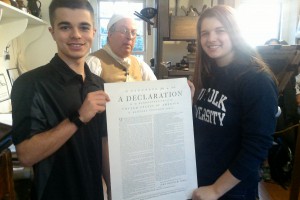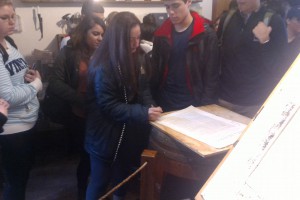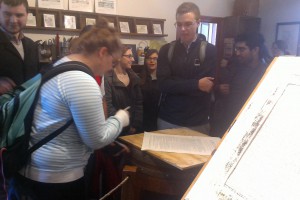Between the first and eighth day of October in 1722, Benjamin Franklin published the fourteenth and final Silence Dogood letter in The New-England Courant. In this final letter, she (Franklin, writing as Dogood) openly airs her grievances against the Church, and the whole construct of organized religion. Some of the previous Dogood letters are written more like stories; setting up scenes with a progressing story line of sorts. In number fourteen, Dogood makes it clear whom she is pointing her finger at. She had already attacked organized religion and the Boston clergy in her ninth essay but this time she directs the attention to clergymen from Connecticut.
The attack on the Connecticut clergymen came from the news that they had a “turn of thought” and switched religious affiliations. He briefly changes his focus to a wider audience and says, “there are too many blind zealots among every Denomination of Christians; and he that propagates the Gospel among Rakes and Beaus without reforming them in their Morals, is every whit as ridiculous and impolitick as a State-man who makes Tools of Ideots and Tale-Bearers.” Here, Dogood is comparing the zealots of Christianity who spread the Gospel but fail to reflect it in their morals to states-men who hires idiots and gossipers (tale-bearers). With this, Dogood is cementing the idea that when religion becomes to organized and strict people become blind with zeal and end up doing more harm than good. This idea is further proven with a line from earlier in the letter that says, “an indiscreet zeal for spreading an opinion hurts the cause of the zealot.”
To wrap up the final letter, Dogood calls upon “two ingenious authors of the Church of England” and cites their work. The last source talks about the word “Church” and how it is the one word in our language that requires more explanation. Before ending the letter and the “Silence Dogood” series, the final quotes says that the confusion over “Church” has brought suffering the to the “cause of piety” as well as “the secular interest of clergymen” all because of “the general unexplained signification of the word Church.” This is the perfect way to end the series without actually saying anything. Franklin used this older text to solidify his discontent with the Church and ended the letter in such away that it left only the facts for the reader to think about.



